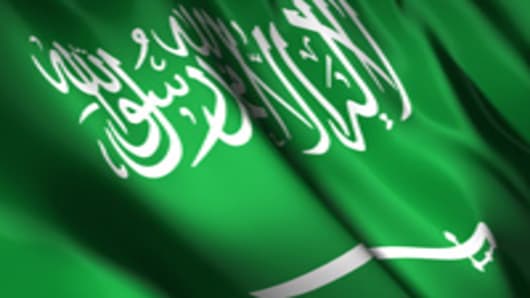Robert Baer, in his 2003 political analysis of The Kingdom's Royal family, 'The Fall of the House of Saud', wrote of the hidden fragility beneath the projections of power and control: "I served for twenty-one years with the CIA's Directorate of Operations in the Middle East, and during all my years there I accepted on faith my government's easy assumption that the money the House of Saud was dumping into weaponry and national security meant that the family's armed forces and bodyguards could keep its members—and their oil—safe. 'The royal family is like the fingers of a hand,' my colleagues at the State Department liked to say. 'Threaten it, and they become a fist.' I no longer believe this."
In fact, Baer goes even farther than that: "For a surprising number of Saudis, including some members of the royal family, taking the kingdom's oil off the world market—even for years, and at the risk of destroying their own economy—is an acceptable alternative to the status quo."
That would seem to suggest that some members of the royal family are willing to risk their vast oil wealth for the cause of revolution —which is a truly shocking claim.
Today, The Associated Press reported that stun grenades —as well as live ammunition — were used against protestors.
Today's reports from Al Jazeera speak to the current public tone within the kingdom: "Media reports over the weekend suggested that some 10,000 Saudi troops would be deployed to crack down on any protests." The article goes on to say that "Government officials have warned they will take strong action if activists take to the streets after increasing calls for large protests around the country to press for democratic reforms."
The unrest in Qatif today had an impact on oil prices, which initially spiked on the news, crossing $104 per barrel, before retreating downward from the day's highs.
In the wake of revolutions in Egypt, Tunisia, and Libya, news from Saudi Arabia is being closely followed by the markets.
Some analysts have referred to a revolution in Saudi Arabia as a "nightmare" scenario in the domino theory of Middle Eastern regimes falling to revolution.
Proving true the adage that a picture tells a thousand words—and perhaps justifying existing concerns —a mapprovided by the US Energy Information Administration shows the Eastern Province city of Qatif, where the unrest has been concentrated, to be located near the heart of a key oil field—and immediately contiguous to a strategic Arabian port.
When you tally up the data—taken in concert with the political analysis—the conclusions suggested are grave.
Perhaps grave enough to cause major hedging against upside risk in the energy markets.
___________________________________________
Questions? Comments? Email us atNetNet@cnbc.com
Follow NetNet on Twitter @ twitter.com/CNBCnetnet
Facebook us @ www.facebook.com/NetNetCNBC


